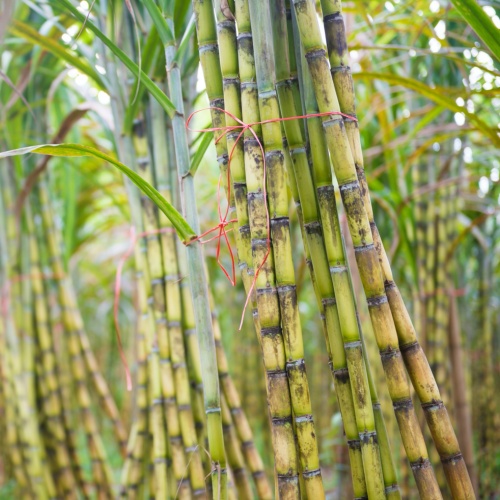Cane Sugar Processing: From Area to Table-- A Step-by-Step Overview
Cane Sugar Processing: From Area to Table-- A Step-by-Step Overview
Blog Article
A Thorough Review of the Health and Economic Implications of Cane Sugar Processing on Local Neighborhoods
Cane sugar processing plays a pivotal duty fit the financial landscape of local communities, using job opportunity and promoting secondary markets. Nonetheless, the wellness ramifications linked with high sugar usage can not be forgotten, as they add to climbing prices of obesity and diabetes mellitus. This nuanced vibrant invites a critical examination of how areas can enhance financial gains while resolving journalism health and wellness obstacles they face. The exploration of educational campaigns and lasting practices may simply hold the key to fixing up these contrasting rate of interests. What techniques might neighborhoods execute to achieve this balance?
Financial Advantages of Cane Sugar Handling
Walking stick sugar handling provides substantial economic advantages that extend beyond the instant agricultural market. The cultivation and processing of sugarcane develop countless task chances, from farming to manufacturing and circulation. This work generation not just sustains local economies but additionally fosters area development by giving secure earnings resources for family members.
In addition, the sugar industry promotes secondary organizations, including transport, equipment supply, and packaging services (Cane Sugar Processing). As these sectors grow, they add to a much more durable financial structure, enhancing overall neighborhood strength. The export possibility of processed cane sugar better magnifies economic benefits, placing areas as affordable gamers in global markets
Investment in contemporary processing facilities can result in enhanced efficiency and effectiveness, thus reducing waste and maximizing resource usage. This change not only benefits the local economic situation yet likewise supports sustainability efforts by minimizing ecological impacts.
In addition, the profits created from walking stick sugar handling can be reinvested in local framework, education and learning, and medical care, advertising alternative area development. On the whole, the economic benefits of walking cane sugar processing are diverse, giving a foundation for sustaining prosperity in farming areas.
Health Threats Associated With Sugar Usage
Too much sugar consumption positions significant wellness dangers that call for major focus. High intake of included sugars, particularly from processed drinks and foods, has actually been connected to countless health and wellness difficulties.
In addition, high sugar consumption is related to heart disease. Elevated blood sugar level levels can lead to insulin resistance, a forerunner to different heart-related problems. Furthermore, sugar can have destructive effects on oral health and wellness, causing dental caries and gum disease, as microorganisms in the mouth grow on sugar, creating acids that wear down tooth enamel.
In addition, arising research recommends a prospective web link in between high sugar intake and psychological health problems, such as clinical depression and stress and anxiety. As neighborhoods grapple with these health dangers, it ends up being vital to promote understanding and urge healthier dietary selections. Attending to sugar consumption is important not only for individual wellness yet likewise for the total wellness of local communities, highlighting the requirement for comprehensive public health methods.
Ecological Impacts of Sugar Manufacturing
Regularly overlooked in conversations about sugar's ramifications is the substantial environmental effect of sugar manufacturing. The growing of sugarcane frequently demands considerable land use, causing deforestation, loss of biodiversity, and disturbance of local communities. The conversion of forests and marshes right into sugar ranches can result in environment damage, harmful countless varieties and modifying eco-friendly equilibrium.
Furthermore, sugar manufacturing is resource-intensive, consuming substantial quantities of water for irrigation. Click Here This can cause exhaustion of regional water resources, detrimentally influencing both agricultural techniques and community accessibility to tidy water. Additionally, making use of chemical fertilizers and chemicals in sugarcane farming can add to dirt degradation and water air pollution, as overflow from these chemicals gets in nearby rivers and lakes, influencing aquatic life and human health.
The ecological footprint reaches the handling phase, where power intake and waste generation more intensify ecological concerns. Air air pollution from melting sugarcane fields, along with greenhouse gas exhausts, add to environment change. Because of this, the environmental implications of sugar production warrant severe factor to consider, prompting stakeholders to embrace more sustainable techniques to alleviate these unfavorable results on regional ecosystems and communities.
Job Production and Area Advancement
The ecological challenges presented by sugar manufacturing are commonly counteracted by its possibility for economic benefits, specifically in job creation and community growth. The cane sugar market acts as a substantial resource of employment in numerous backwoods, providing tasks throughout different ability levels, from agricultural labor to handling and circulation duties. This employment not just supports specific households yet additionally adds to the total economic vigor of neighborhood neighborhoods.
Additionally, the establishment of sugar handling facilities stimulates secondary organizations, such as transportation services, devices supply, and upkeep suppliers. As these businesses grow, they produce added tasks and strengthen local economic climates. The earnings produced from the sugar industry additionally brings about enhanced tax profits, which can be reinvested right into community services such as health care, infrastructure, and education and learning growth.
Furthermore, the sugar industry commonly takes part in community growth campaigns, such as supporting local colleges and health and wellness programs, therefore enhancing the lifestyle for citizens. By fostering solid community connections and advertising financial growth, the walking cane sugar processing sector plays a vital function in uplifting neighborhood populations, making it a crucial component of sustainable growth strategies in sugar-producing areas.
Balancing Health and Economic Growth
In navigating the complexities of walking stick sugar processing, an important difficulty hinges on balancing wellness factors to consider with economic growth. The sugar market substantially adds to local economic situations by generating tasks, promoting related industries, and increasing tax profits. Nevertheless, the health and wellness effects linked with extreme sugar intake can cause persistent diseases such as obesity, diabetic issues, and cardio concerns, which can concern public wellness systems and reduce workforce performance.

Additionally, regulatory structures can play an essential duty in leading sector techniques towards even more sustainable click here to read and health-conscious strategies. By cultivating cooperation in between federal government bodies, wellness organizations, and the sugar industry, site neighborhoods can navigate the dichotomy of health and financial growth, guaranteeing that the benefits of walking stick sugar handling are equitably shared while prioritizing public health.
Conclusion
In verdict, the handling of walking cane sugar presents both significant economic benefits and noteworthy wellness risks for local communities. While it promotes work production and promotes local growth, the connected wellness problems, particularly relating to obesity and diabetes, necessitate a mindful balancing act. By advertising responsible intake and investing in neighborhood education and sustainable practices, it is possible to optimize economic benefits while minimizing adverse health effects, consequently ensuring a healthier future for neighborhood populaces.
Additionally, sugar can have damaging results on oral wellness, resulting in dental caries and periodontal illness, as germs in the mouth grow on sugar, generating acids that erode tooth enamel.
Attending to sugar consumption is essential not only for individual health however also for the total wellness of neighborhood communities, stressing the demand for thorough public health and wellness methods.
Frequently forgotten in discussions regarding sugar's implications is the significant ecological effect of sugar manufacturing. The health ramifications associated with extreme sugar usage can lead to chronic illness such as weight problems, diabetes mellitus, and cardiovascular issues, which can worry public health systems and lessen labor force efficiency.

Report this page